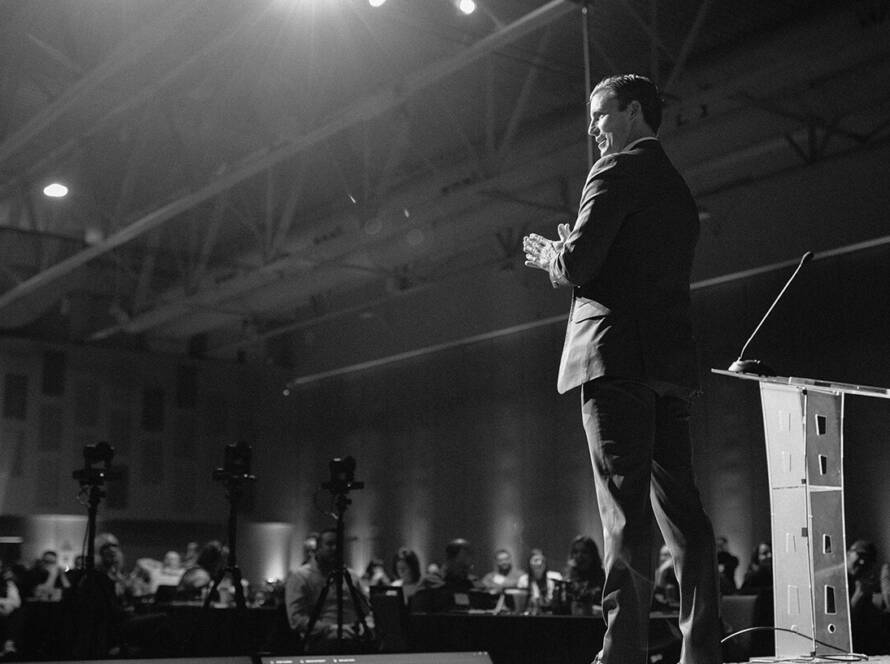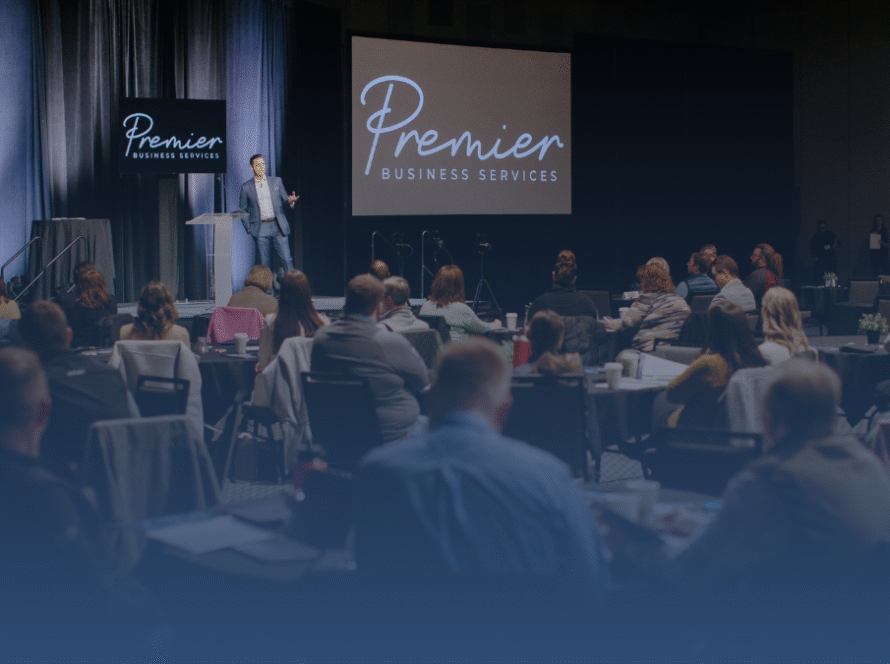When I first started speaking, I approached it like an actor. I focused on the performance—delivery, tone, timing, emotion. And while those things matter, they only take you so far. If you want to build a speaking career that grows, evolves, and opens doors, you have to start thinking like a business owner.
This idea really came to life during my recent conversation with Leah Woodford on the Beyond Impact podcast. Leah is the founder of Speaker Life Magazine, and she’s built a brand that doesn’t just help speakers find their voice—it helps them build a platform. Her perspective made something very clear: if you’re not thinking like an entrepreneur, you’re leaving opportunities on the table.
The Speaker Bureau Trap
A lot of new speakers believe that getting listed on a speaker bureau will jumpstart their career. I used to think that too. But as Leah pointed out:
“They want somebody who’s already speaking and already bookable… they don’t want to work.”
That might sound harsh, but it’s true. Bureaus aren’t there to build your brand. They’re there to manage people who are already in demand. If you’re not booking gigs consistently on your own, you’re unlikely to rise to the top of their list.
Which means it’s on you.
And that’s actually a good thing.
You Are the Brand
The moment I started treating my speaking like a business instead of a side project, everything shifted. I started looking at my talks like products. I paid attention to what was working, what wasn’t, and what kind of content my audience actually wanted more of.
“I created Speaker Life Magazine as a leverage tool,” she said. “I leveraged it to build relationships, get on stages, and create visibility.”
That’s what entrepreneurs do. They build tools, not just content. They look for ways to stand out and create value. And they don’t wait to be discovered. They create their own momentum.
Create Leverage, Not Just Content
Whether it’s a podcast, a blog, a YouTube channel, or a print magazine—everything you create can be used as leverage. Not to pitch yourself, but to open doors and serve others.
Leah shared how she created a custom swag box she sends to celebrities and event planners. That single idea got her noticed, booked, and remembered.
“Everybody’s sending emails,” she told me. “You have to be different. You have to get that attention currency.”
That’s exactly what an entrepreneur would say.
Know What Problem You Solve
This is where your strategy really starts to matter. Businesses solve problems. So do great speakers. The question is, can you articulate what problem you solve?
Leah works with speakers to define that early on. “Who are you? Who do you serve? What problem do you fix?” If you can’t answer those three questions, it’s time to step back and get clear. Because clarity builds confidence—and confidence books stages.
Build Relationships, Not Just Followers
One of the best pieces of advice Leah gave was to go deep in your relationships. Visibility doesn’t always come from going viral. More often, it comes from meaningful, strategic connections.
Find the people who serve your ideal audience. Identify the event planners, community leaders, podcast hosts, and organizations aligned with your message. Then ask yourself, how can you serve them?
Thinking like an entrepreneur means looking beyond the stage. It’s about building something sustainable, adaptable, and meaningful.
Catch the Full Conversation with Leah Woodford
In our episode together, Leah and I cover the mindset shift that changed everything for both of us. From leveraging media to building a clear brand, this conversation is full of practical strategies for speakers who want to take control of their careers.
You don’t have to wait for permission to speak. You don’t need a bureau to build your brand. The best speakers think like entrepreneurs—and that’s what gives them staying power.


